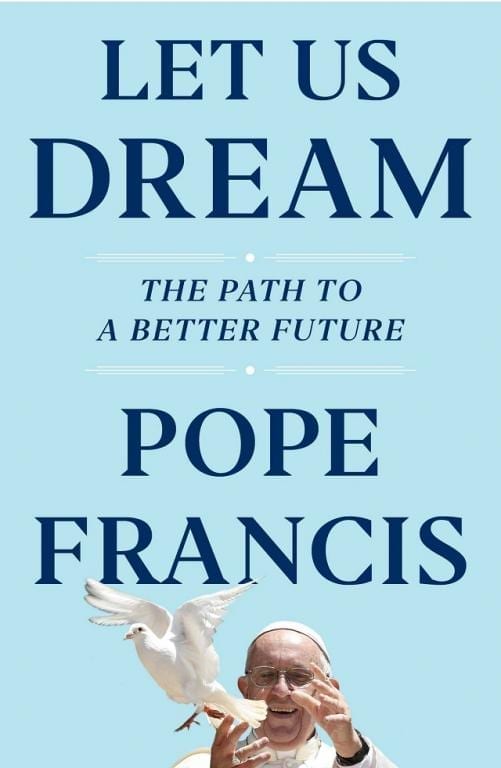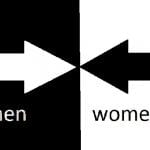
This came about when radical Catholic reactionary Steven O’Reilly (who thinks the pope is a heretic) made a reply to me, in an effort to press me to comment further on Amoris Laetitia: Pope Francis’ encyclical from 3-19-16. Previously, yucking it up with fellow pope-basher and advocate of ecclesial defectibility Steve Skojec (who opined that I was “intentionally stupid”) on Twitter, O’Reilly had referred to me as a purveyor of “crazy labels” and “in denial” and an “apologist” only in quotation marks (that is, not at all) and (my favorite) a member of the club of “Francis toadies”. Can I be a “Jesus toady” too? Sounds about right to me!
Merriam-Webster online defines “toady” as “one who flatters in the hope of gaining favors.” The synonym provided is “sycophant”: defined as “a servile self-seeking flatterer.” The obvious problem with this is that I have gotten back only misery and no end of problems, by defending Pope Francis (in everyday terms, I have “caught hell”), because the fashionable and chic myth and fairy tale today is this false notion that he is a flaming liberal, subversive against the Church, enemy of Catholic moral and theological tradition, and indeed, a heretic.
So by opposing all these lies (and they assuredly, undoubtedly are lies, and I can back my assertions up), I somehow gain “favors” or have any remote “hope” of gaining same? My advocacy of what is the plain dogmatic teaching of Vatican I — not II — (that the pope can never even fall into heresy, let alone promulgate it) has certainly harmed my apostolate, in terms of followers, contributors, online visibility, etc. I clearly gain nothing by this. I’ve paid a big price. But that’s fine with me. I’m happy to do so. It’s my duty and privilege to do it.
If anyone is gaining favors and self-seeking (and I don’t assert this; only rhetorically state it), it is the legion of reactionary pope-bashers like Taylor Marshall, Steve Skojec and One Peter Five, The Remnant, Lifesite, Rorate Caeli, Peter Kwasniewski et al, ad nauseam, who get tons of attention (hits, shares, book sales), and sometimes, tons of money as well (book royalties), for their despicable and harmful efforts. I am simply defending the Holy Father and the institution of the papacy, which I have always thought — in my 30 + years of Catholic apologetics –, was part and parcel of my field; in fact, obligatory.
I defended Pope St. John Paul II when he was attacked and bashed (and he assuredly was), Pope Benedict XVI when he was also trashed (reactionaries now detest him or at least his resignation: feeling a bit like jilted lovers), and I defend Pope Francis when he is lied about and slandered as well. And I will defend the next pope who will also (mark my words) be lied about. The devil is very active in this respect. He knows who to go after.
But now all of a sudden doing that is a “controversial” thing. I’ve been told in a gossipy, cowardly fashion that “many” people (of course not mentioned by name) have a “lower” opinion of me because I defend the Holy Father and the papacy. That’s how low we have sunk in our pathetic time. So insult away! We’ll see in the end (including on Judgment Day itself) who was on the right side of this. I’m happy to let God be my judge, rather than hundreds of thousands of fawning “fans.” Mere filthy lucre or fame and accolades have never been my motivation, and never will be.
Thanks, dear reader, for indulging me and letting me get that off of my chest! Despite these rank insults, a few days ago O’Reilly decided he would become serious and try to engage in actual dialogue (albeit of an obsessive and “one-note tune” nature) with me. The problem was that I had already reiterated over and over (in my counter-reply) that:
I leave those fine-tuned questions mostly to theologians. . . . Fine points are for moral theologians, and neither you nor I are that. . . . I stand by everything he [Dr. Fastiggi] argues. He’s a personal friend of mine, and of unimpeachable orthodoxy. . . . Dr. Fastiggi is editor of the revised Denzinger and Ott both. He’s the man for systematic theology, in my opinion.
In other words, he picked the wrong topic to engage with me. I then linked Dr. Robert Fastiggi’s articles defending the theological and moral orthodoxy of Amoris Laetitia: (one / two / three / four). Undaunted, O’Reilly kept trying to goad me all the more in his combox underneath it:
[Y]our ‘go read Dr. Fastiggi’ is not a sufficient answer. Anyone with common sense can see that. After all, if one were to ask you, a professional apologist, about your opinion of the Petrine Office and the views opposed to it, I assume (and hope) your answer would go beyond simply telling one to ‘go read Karl Keating’ or ‘go look at Matthew 16:18, that is all I need to say.’ If that is your approach to honest, good-faith, apologetical questions; my surprise is not that you have written “2,800 papers and 50 books,” it is that you have written any.
These juvenile tactics don’t work with me. I gave my answer: deferring to a respected theologian. It wasn’t good enough for O’Reilly. That’s his problem, not mine. I have no qualms in expressing that I am not sufficiently qualified to delve into the depths of a particular controversial and complex issue, and that it is best left to the expertise of theologians, canonists, and bishops gathered in synod, as it were. But Amoris Laetitia happens to be a virtual obsession with O’Reilly, by his own report:
I contented myself with wearing out my local archbishop, pastor, friends and family with my screeds over developments in the Church, especially during these past few years following the issuance of Amoris Laetitia. (his “About” page)
Note how he even wore out his own “family.” This is the mark of a fanatic, for sure. But apart from his own overly aggressive shortcomings, we understand that there are a lot of folks out there like O’Reilly who think that Amoris Laetitia is a terrible, heretical document, that sought to overthrow constant Catholic moral and theological tradition. They’re confused and disheartened, yet they need not be at all. We totally disagree with their assessment. There is plenty of clarifying material out there.
In my own effort to soothe fears and hysteria, I have collected many substantive articles from others, who defend the orthodoxy of the document. A search of my collection of 266 pro-Francis articles yields fifteen with “Amoris” in their titles. And there are others in the same collection that deal with the same topic (without “Amoris” in their titles), such as:
Pope Francis’s New Document on Marriage: 12 Things to Know and Share (Jimmy Akin, National Catholic Register, 4-8-16)
Pope Francis Shatters Reformers’ Dreams with ‘Modern Family’ Document (Thomas D. Williams, Breitbart, 4-8-16)
Pope Affirms Traditional Marriage (Bill Donohue, Newsmax, 4-8-16)
Pope Francis’s revolution has been cancelled (Damian Thompson, The Spectator, 4-8-16)
Pope Francis on love in the family (Archbishop Charles J. Chaput, CatholicPhilly.com, 4-14-16)
Pope Francis is a social conservative (Tim Stanley, The Telegraph, 4-18-16)
Pope okays Argentine doc on Communion for divorced and remarried (Inés San Martín, Crux, 9-12-16)
What Pope Francis said about Communion for the divorced-and-remarried (Catholic News Agency, 9-13-16)
Not heretical: Pope Francis’ approval of the Argentine bishops’ policy on invalid marriages (Dr. Jeff Mirus, Catholic Culture, 9-15-16)
Cardinal Schönborn: Pope Francis follows John Paul II’s teaching on communion (Catholic Herald, 4-8-16)
Recent Comments of Pope Francis Should Help to Quiet Papal Critics (Robert Fastiggi, La Stampa / Vatican Insider, 11-28-17)
Pastoral Charity is the Key to Pope Francis’s Endorsement of the Buenos Aires Bishops’ Document (Robert Fastiggi, La Stampa / Vatican Insider, 11-28-17)
So that is at least 27 in-depth articles regarding Amoris Laetitia and closely related issues, that I have provided for my readers. But it’s not good enough for Steven O’Reilly. All he appears to care about is my opinion. Well, just because I appealed to others more knowledgeable than myself on the issue (which is what I always do as an apologist if I feel that others have points to make that are above my pay grade), it doesn’t mean I have completely ignored it, either. A perusal of my own collection of my own 184 defenses of Pope Francis yields eight relevant articles:
Amoris Laetitia: Pope Francis’ “1968 Moment” [4-8-16]
Defenses of Pope Francis’ Amoris Laetitia [4-9-16]
More Defenses of Amoris Laetitia & Pope Francis [4-26-16]
Satan Loves Divisions Re Amoris Laetitia [5-2-16]
Dialogue: Amoris Laetitia: Confusing or No? [5-3-16]
Amoris Laetitia, “Trads” & Reactionaries [5-4-16]
Buzzing, Mosquito-Like Trashers of Amoris Laetitia [5-6-16]
Amoris Laetitia Has Already Been Clarified Many Times, Including by High-Ranking Cardinals [11-16-16]
So now we’re up to 35 articles about Amoris Laetitia, hosted or prominently linked on my site, including eight of my own, and Steven O’Reilly is still trying to figure out what I believe on the issue, and why? It is a very odd thing. But this is what people do when they are obsessed. Nevertheless, in a sincere and charitable attempt to deliver Mr. O’Reilly from his existential misery (and others, too, who are of the same opinion, and read this article), I did contact my good friend, Dr. Robert Fastiggi, and he was kind enough to clarify his opinions (and the pope’s as an extra bonus). What follows are his letter to me last night, and accompanying material from then-Cardinal Ratzinger that he sent with it.
*****
1). From Cardinal Ratzinger’s 1998 essay, “CONCERNING SOME OBJECTIONS TO THE CHURCH’S TEACHING ON THE RECEPTION OF HOLY COMMUNION BY DIVORCED AND REMARRIED MEMBERS OF THE FAITHFUL”
3 c. Admittedly, it cannot be excluded that mistakes occur in marriage cases. In some parts of the Church, well-functioning marriage tribunals still do not exist. Occasionally, such cases last an excessive amount of time. Once in a while they conclude with questionable decisions. Here it seems that the application of epikeia in the internal forum is not automatically excluded from the outset. This is implied in the 1994 letter of the Congregation for the Doctrine of the Faith, in which it was stated that new canonical ways of demonstrating nullity should exclude “as far as possible” every divergence from the truth verifiable in the judicial process (cf. No. 9). Some theologians are of the opinion that the faithful ought to adhere strictly even in the internal forum to juridical decisions which they believe to be false. Others maintain that exceptions are possible here in the internal forum, because the juridical forum does not deal with norms of divine law, but rather with norms of ecclesiastical law.
This question, however, demands further study and clarification. Admittedly, the conditions for asserting an exception would need to be clarified very precisely, in order to avoid arbitrariness and to safeguard the public character of marriage, removing it from subjective decisions
This essay is found in the third part of Cardinal Ratzinger’s Introduction to Volume 17 of the series produced by the Congregation for the Doctrine of the Faith, entitled “Documenti e Studi”, On the Pastoral Care of the Divorced and Remarried, LEV, Vatican City 1998, pp. 20-29. It’s posted on the Vatican website after the 1994 letter of the CDF on this matter.
2). This same difficult case is mentioned by Cardinal Gerhard Müller in his introductory essay (Saggio introduttivo) to Rocco Buttiglione’s book, Risposte amichevoli ai critici di Amoris Laetitia (Milano: Edizioni Ares, 2017), 23–25. With respect to cases in which the nullity of the prior bond is impossible to prove, Cardinal Müller writes:
If the second bond were valid before God, the marital relations of the two partners would not constitute a grave sin but instead a transgression against the public ecclesiastical order for having irresponsibly violated the canonical rules and therefore a light sin. This does not obscure the truth that relations more uxorio with a person of the other sex, who is not the legitimate spouse before God, constitute a grave fault against chastity and against the justice owed to the proper spouse.
3). Cardinal Agostino Vallini, the former Prefect of the Apostolic Signatura under St. John Paul II and the Vicar of the Archdiocese of Rome, issued some guidelines on Amoris Laetitia on Sept. 19. 2016, as the Vicar of Pope Francis for the Archdiocese of Rome. These guidelines were by means of a relazione (relation or report) entitled “La letizia dell’amore”: il cammino delle famiglie a Roma” (“The joy of love”: the way of families in Rome”). In his guidelines, Cardinal Vallini refers to footnote 351, and he notes that the footnote (in Italian) uses the conditional and reads: “In certain cases there could (potrebbe) also be the help of the sacraments.”
The use of the conditional shows that Pope Francis is not saying that divorced and civilly remarried Catholics must be admitted to the sacraments. The Holy Father is only noting that they are not excluded from the sacraments in some cases and under certain conditions. What are these conditions? Cardinal Vallini mentions the case in which there is moral certitude that the first marriage was null but there are no proofs to demonstrate this in a judicial setting. In such a case, the only opening to the sacraments would be with a confessor who, at a certain point—in his conscience and after much reflection and prayer—must assume responsibility before God and to the penitent and request that access to the sacraments take place in a reserved manner (in maniera riservata).
4).The philosopher, Rocco Buttiglione, in his 2017 book, Risposte amichevoli ai critici di Amoris Laetitia [Friendly responses to the critics of Amoris Laetitia], notes that Pope Francis is not admitting the divorced and remarried to communion but to confession (p. 68). The confessor must use discernment to decide whether to give absolution, which allows the penitent to receive communion.
Buttiglione—who was a friend of St. John Paul II and an expert on the late Pontiff’s thought—recognizes that absolution can only be given when there a resolve not to commit a sin that is materially grave (pp. 180–181). The confessor, though, must be aware of mitigating factors that might limit the responsibility of the penitent for committing acts that are gravely sinful. Buttiglione gives the example of a woman who is in a condition of total economic and psychological dependence on her civil partner, and this man imposes sexual relations on her against her will (p. 171).
Here it’s not a matter of judging a sinful act not to be sinful but of discerning whether the penitent is fully culpable for the sin. Buttiglione notes: “This does not imply that the unmarried can legitimately engage in sexual acts. The acts are illegitimate, but persons (in some cases)—through the absence of full awareness and deliberate consent—can be free from incurring mortal sin” (p. 172). For absolution to be given there must be the resolve to leave the situation of sin even if the penitent (in the case mentioned) cannot promise to avoid immediately the objective act of sin because she’s living in a situation that exposes her to the irresistible temptation to commit the act (p. 172).












